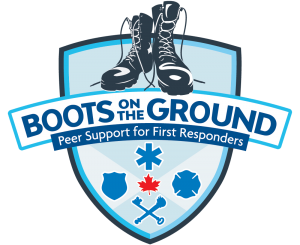
PTSD Resource Toolkit
First responders are at least twice as likely to suffer from PTSD. There’s no need to suffer in silence. The help you need is here. This website offers resources and services for the First Responder community to understand the various steps of a PTSD program from managing a crisis through to implementing best practices into an existing program.
Posttraumatic Stress Disorder (PTSD) is a mental health condition caused by witnessing or experiencing actual or threatened death, serious injury or violence. Being affected by these types of events is normal, however if the thoughts or memories of these events start to seriously affect the life of the person long after the event, that person could be experiencing PTSD. Signs that someone may be experiencing PTSD include nightmares, uncontrollable memories, persistent fear and severe anxiety.
In 2016, Ontario passed an amendment to the Workplace Safety and Insurance Act that stated that PTSD diagnosed in first responders by a psychiatrist or psychologist is presumed to be work-related. The amendment also allowed the Minister of Labour to request and publish PTSD prevention plans from organizations covered by this legislation.
For organizations requiring assistance to create a stronger more resilient workplace or create or update a required prevention plan, here you will find a toolkit of resources developed by the PSHSA, including:
- help to identify when a first responder might have a problem,
- where to seek help, best practices for employers
- ongoing news and events related to PTSD and mental wellness.
IMPORTANT NUMBERS
For Immediate Access
9-1-1 connects you directly to an operator who then connects your call to the emergency response centre serving your area.
I Need to Talk
Distress and Crisis Ontario connects you to distress and crisis centres across Ontario that offer support and services to their communities including 24 hour distress help lines and other services.
 Are You Looking for Confidential Peer Support?
Are You Looking for Confidential Peer Support?
Boots on the Ground provide confidential, caring and compassionate Peer Support to First Responders across the Province of Ontario.
To access this support call this toll free number: 1-833-677-2668
For more information:
Visit Boots on the Ground PSHSA Mental Health Webinars
PSHSA Mental Health Webinars
Learn more about how your emergency services organization can better support workplace mental health with this series of free webinars from Public Services Health & Safety Association.
Learn MoreHomewood Research Institute is conducting a study investigating the use of Goal Management Training to improve cognitive functioning in individuals with PTSD. The program is a 9 week program that aims to improve attention, memory and executive functioning in individuals with Post-Traumatic Stress Disorder (PTSD). The program also seeks to improve functional outcomes such as performance in both the workplace and educational settings. This is an experimental trial being conducted at Homewood Health center in Guelph and Homewood Clinic in Mississauga.
If you are interested in participating in this study, please download and review this information letter and consent to contact form.
To get the most out of the resources available on this website take the following steps:
1. Explore
the
website
2. Complete
the
Assessment
3. Receive and
review your
Action Plan
4. Use your action plan
to get started on Your
PTSD Prevention Plan
PTSD Prevention Program Framework:
Getting Started
Explore and Learn about the Elements of the PTSD Prevention Program Framework
Below is a framework that takes a holistic approach to PTSD prevention and management within an organizations’ Occupational Health and Safety Management System. The model explores the elements of prevention, intervention and recovery and return to work across three stages of development: Just Getting Started, Taking Proactive Steps and Implementing Best Practices.
To start, this site is focused on Just Getting Started. At this stage of the journey the employer needs help understanding their legal requirements. There is a potential that the organization is dealing with a crisis, or they may simply need basic support. At this stage they may not be ready or able to make a significant investment in PTSD Prevention. The focus is on building awareness, reducing stigma, developing policies, defining roles & responsibilities.
Identify the Gaps in Your Organizational PTSD Prevention Plan
Plan and prioritize the steps to take in developing your Prevention Plan
The assessment below outlines key steps you should take when you are Just Getting Started on your PTSD Prevention Plan. Remember, to find out more information about Just Getting Started, you can simply explore the framework above.


 Self-Assessment:
Self-Assessment: